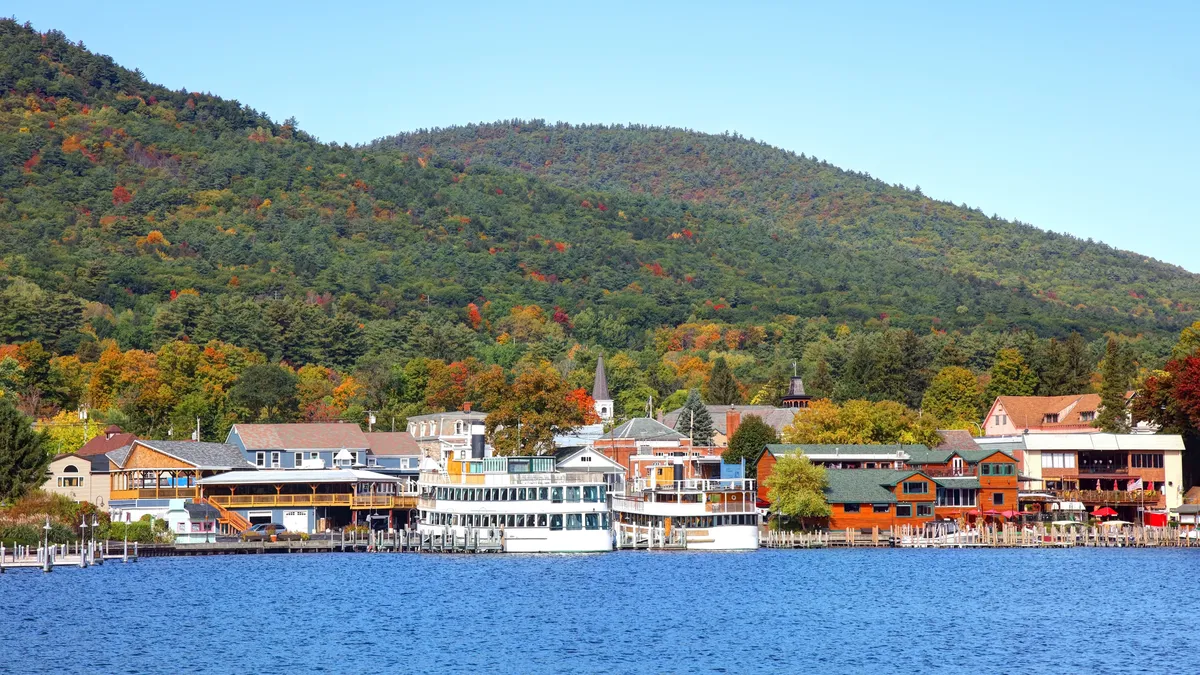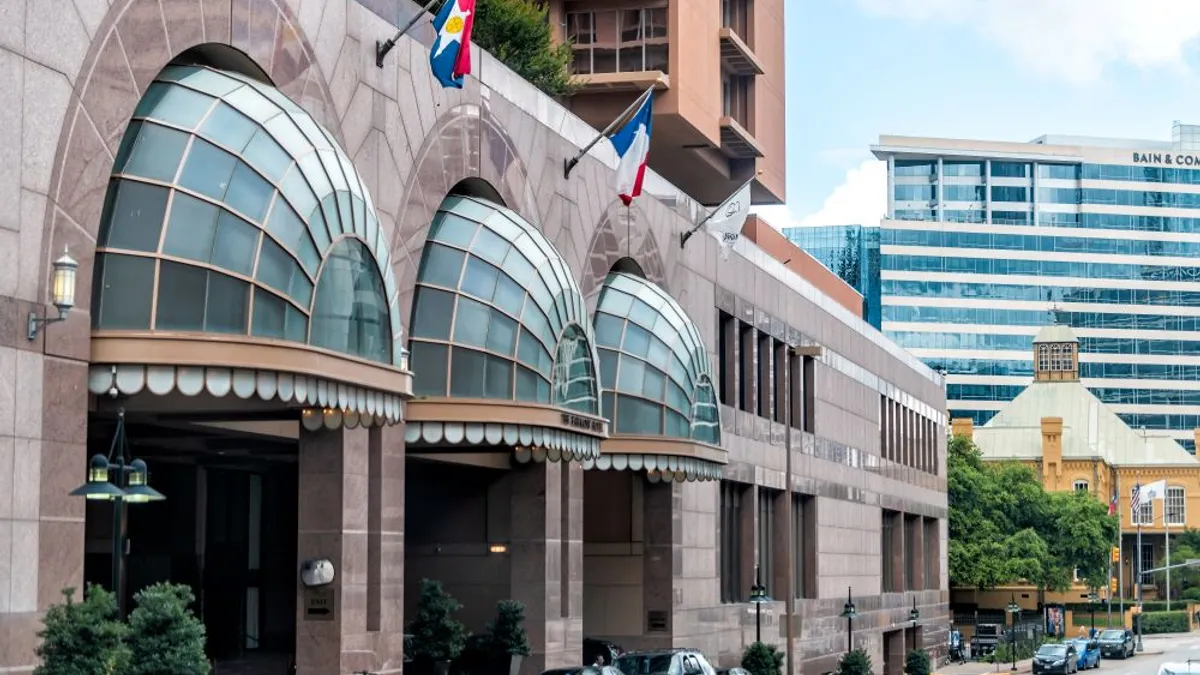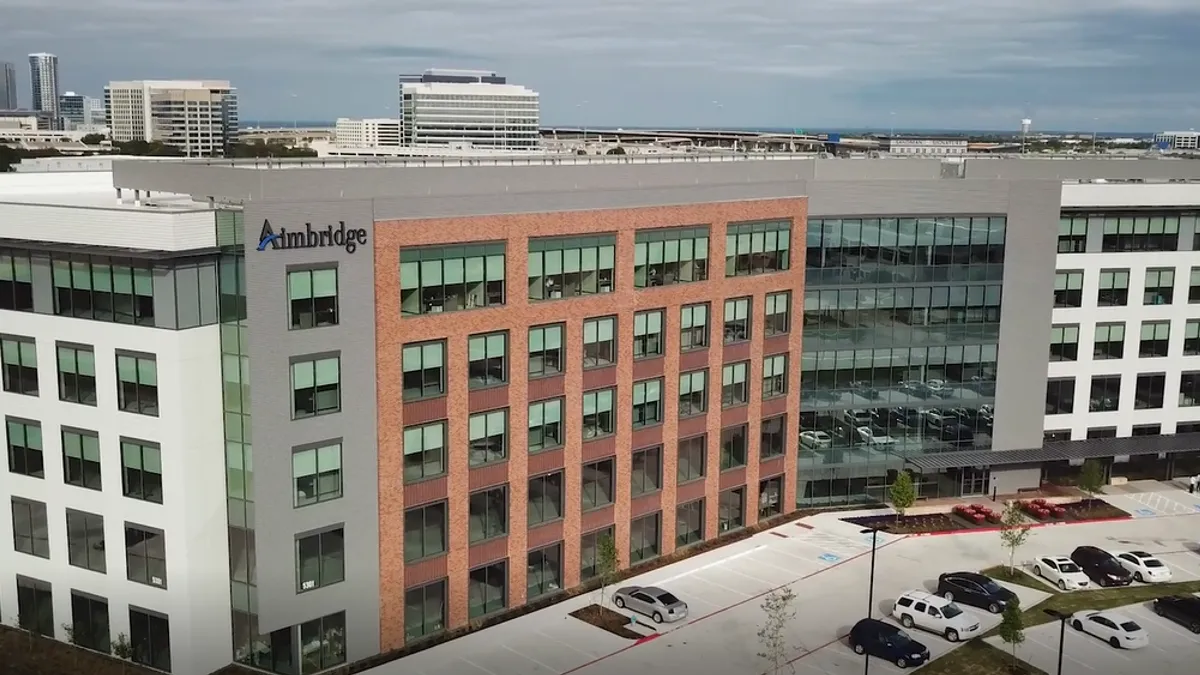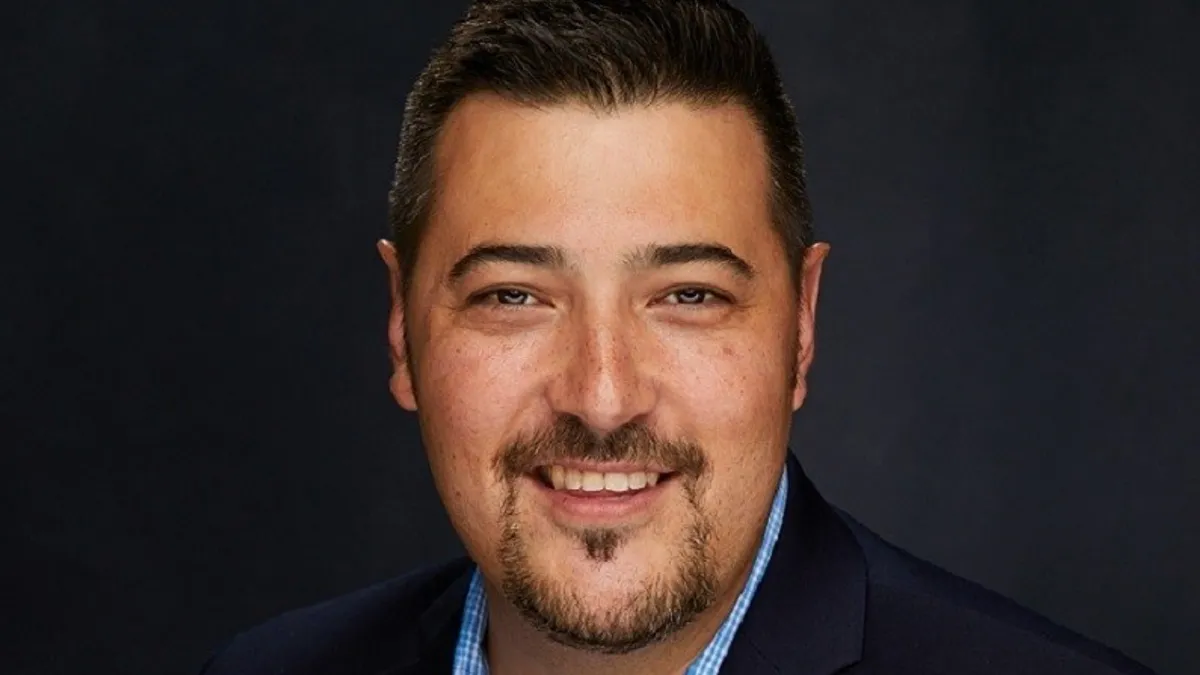The growth rate for occupancy, ADR and RevPAR in the Manhattan lodging market in the second quarter of this year, while “robust,” continued to decelerate, according to a lodging index published this week by PwC.
Leading RevPAR growth in the New York market was the luxury segment, which saw the “most significant” year-over-year increase in RevPAR in the quarter, according to PwC. The performance growth patterns exhibited in Manhattan in Q2 pace with nationwide trends recently reported by STR and CBRE.
Despite decelerating RevPAR, Manhattan hotels can expect to benefit from minimal hotel room supply growth over the next several years, PwC noted. But a proposed licensing mandate could pose challenges for hotels in the market.
RevPAR growth trends
RevPAR in the Manhattan market increased 6.8% year over year in Q2 but decelerated from Q1, when RevPAR was up 9.4% annually, PwC found.
Meanwhile, occupancy and ADR saw continued growth, “albeit at a slower pace than Q1,” according to PwC. Average occupancy and ADR in Q2 increased to 87.2% and $336.84, respectively, leading Manhattan RevPAR to jump to $293.62 in the quarter, up from $274.89 the prior-year quarter.
Manhattan’s RevPAR growth in Q2 is on track with PwC’s November prediction that U.S. RevPAR and ADR would decelerate through 2024. At the time, the company said economic headwinds and geopolitical tensions would have an impact on hotel performance in 2024.
Earlier this month, in an outlook report, CBRE reduced its forecast for U.S. hotel performance for full-year 2024, but also noted that RevPAR growth will likely be stronger in the second half of the year than the first.
Weakening consumer spending could threaten hotels nationwide in the near term, CBRE forecasted.
STR President Amanda Hite noted a similar trend in her company’s mid-year outlook with Tourism Economics, saying, “Midscale and Economy hotels are continuing to feel the effect of fewer lower-income travelers. On the other hand, high-income households continue to travel.”
For these reasons, STR and Tourism Economics predicted that upper-tier hotel segments will see the highest RevPAR growth in 2024 and 2025.
Luxury leads
In Manhattan, growth in higher-tier segments was prevalent in Q2, with luxury properties seeing the highest year-over-year RevRAR increase of other market classes, up 8.3%, per the PwC report.
Luxury hotel occupancy “benefitted from increased demand,” according to PwC. Deloitte reported in May that a greater percentage of summer travelers this year would be in higher income brackets.
Upscale properties in the market, meanwhile, saw a RevPAR increase of 5.7% year over year in Q2, and upper upscale properties saw a 7.2% increase in RevPAR for the same period.
The Q2 results “solidify a return to stabilized pre-covid levels” in Manhattan, PwC Principal Abhishek Jain said in a statement.
“While RevPAR growth decelerated significantly throughout the first half of 2024, minimal hotel room supply additions over the next several years are expected to benefit existing hotels, potentially resulting in price compression in the market,” Jain added.
Looming legislation
Another factor that could impact Manhattan hotels is a licensing bill, proposed in mid-July by City Councilperson Julie Menin, that would require hotels to obtain a license to operate in the city.
The legislation would also require hotels to maintain continuous front desk coverage, and large hotels would be required to have continuous coverage by at least one security guard, according to a New York City Council filing. All hotels would need “to maintain the cleanliness of each guest room,” and the licensee would have to “directly employ their core employees, subject to enumerated exceptions,” the filing reads.
The American Hotel & Lodging Association condemned the bill, claiming that the licenses would “require non-union hotels to eliminate the use of subcontractors for core functions.”
“This abrupt and destructive bill would permanently alter how hotels operate and threaten the jobs of thousands of New Yorkers,” AHLA Interim President and CEO Kevin Carey said in a July statement. “If it becomes law, thousands of hotel jobs could be lost, hotels will shutter, and New York City’s economy – especially small business retailers, restaurants, and other hotel service providers – will suffer substantially.”
He added that the bill “imposes workplace rules that should be negotiated at the collective bargaining table, and fast-tracking a proposal of this magnitude in the dead of summer without input from hoteliers is policy malpractice.”
Vijay Dandapani, a New York City hotel owner and president and CEO of the Hotel Association of New York City, also criticized the bill, telling Hotel Investment Today earlier this month that it is “business killing” and features mandates that are “a death knell” for small hotels.
Following industry pushback, on July 28, Menin posted to the social media platform X that she would delay a planned July 30 hearing on the bill to “allow for more time for feedback prior to taking the next step in the legislative process.”

















